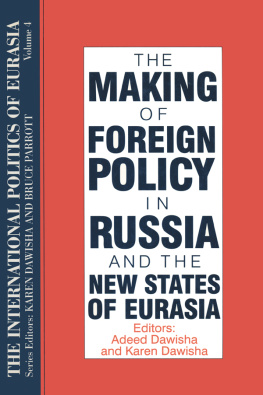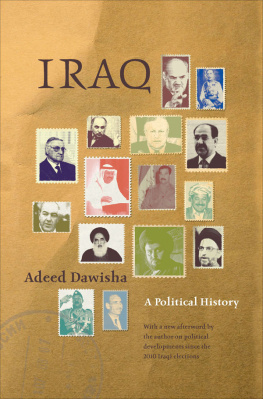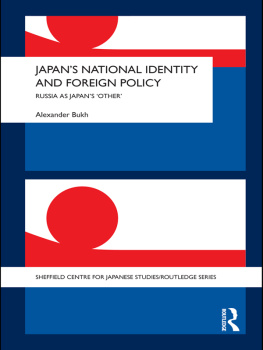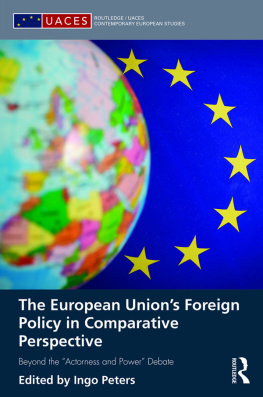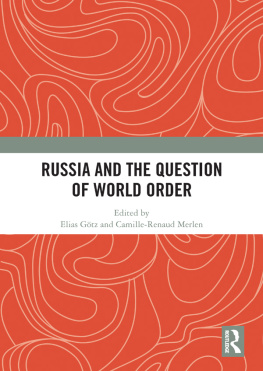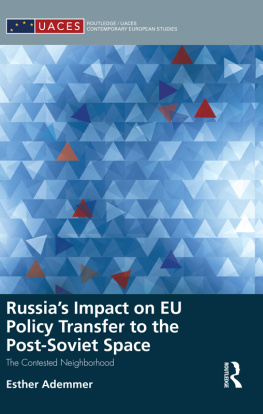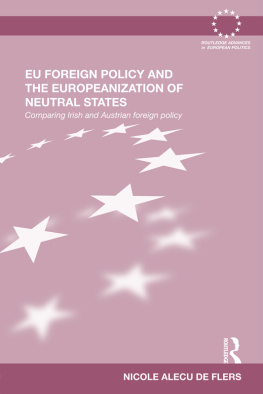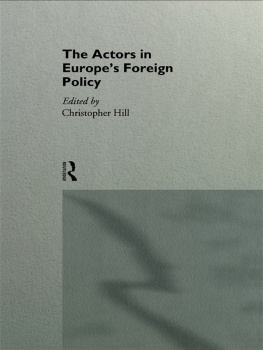THE
MAKING
OF
FOREIGN
POLICY
IN
RUSSIA
AND THE
NEW STATES
OF EURASIA
THE INTERNATIONAL POLITICS OF EURASIA
Editors:
Karen Dawisha and Bruce Parrott
This ambitious ten-volume series develops a comprehensive analysis of the evolving world role of the post-Soviet successor states. Each volume considers a different factor influencing the relationship between internal politics and international relations in Russia and in the western and southern tiers of newly independent states. The contributors were chosen not only for their recognized expertise but also to ensure a stimulating diversity of perspectives and a dynamic mix of approaches.
Volume 1
The Legacy of History in Russia and the New States of Eurasia
Edited by S. Frederick Starr
Volume 2
National Identity and Ethnicity in Russia and the New States of Eurasia
Edited by Roman Szporluk
Volume 3
The Politics of Religion in Russia and the New States of Eurasia
Edited by Michael Bourdeaux
Volume 4
The Making of Foreign Policy in Russia and the New States of Eurasia
Edited by Adeed Dawisha and Karen Dawisha
Volume 5
State-Building and Military Power in Russia and the New States of Eurasia
Edited by Bruce Parrott
Volume 6
The Nuclear Challenge in Russia and the New States of Eurasia
Edited by George Quester
Volume 7
Political Culture and Civil Society in Russia and the New States of Eurasia
Edited by Vladimir Tismaneanu
First published 1995 by M.E. Sharpe
Published 2015 by Routledge
2 Park Square, Milton Park, Abingdon, Oxon OX14 4RN
711 Third Avenue, New York, NY 10017, USA
Routledge is an imprint of the Taylor & Francis Group, an informa business
Copyright 1995 Taylor & Francis. All rights reserved.
No part of this book may be reprinted or reproduced or utilised in any form or by any electronic, mechanical, or other means, now known or hereafter invented, including photocopying and recording, or in any information storage or retrieval system, without permission in writing from the publishers.
Notices
No responsibility is assumed by the publisher for any injury and/or damage to persons or property as a matter of products liability, negligence or otherwise, or from any use of operation of any methods, products, instructions or ideas contained in the material herein.
Practitioners and researchers must always rely on their own experience and knowledge in evaluating and using any information, methods, compounds, or experiments described herein. In using such information or methods they should be mindful of their own safety and the safety of others, including parties for whom they have a professional responsibility.
Product or corporate names may be trademarks or registered trademarks, and are used only for identification and explanation without intent to infringe.
Library of Congress Cataloging-in-Publication Data
The making of foreign policy in Russia and the new
states of Eurasia / editors, Adeed Dawisha and Karen Dawisha.
p. cm. (The international politics of Eurasia ; v. 4)
Includes bibliographical references and index.
ISBN 1-56324-358-X (cloth : alk. paper).
ISBN 1-56324-359-8 (paper : alk. paper).
1. RussiaForeign relationsEurasia. 2. EurasiaForeign
relationsRussia. I. Dawisha, A. I. II. Dawisha, Karen.
III. Series.
JX1555.Z7E93 1995
327.4705dc20 9449384
CIP
ISBN: 9781563243592 (pbk)
ISBN: 9781563243585 (hbk)
Adeed Dawisha is currently a professor of government and politics in the Department of Public and International Affairs at George Mason University in Virginia, and was formerly the deputy director of studies at the Royal Institute of International Affairs in London, England. He received his Ph.D. in international relations in 1974 from the London School of Economics and Political Science. Among his books are Beyond Coercion: The Durability of the Arab State (1992), The Arab Radicals (1986), Islam and Foreign Policy (1983), The Soviet Union in the Middle East (1981), Syria and the Lebanese Crisis (1979), and Egypt in the Arab World: The Elements of Foreign Policy (1976).
Karen Dawisha is professor of government at the University of Maryland, College Park. She graduated with degrees in Russian and politics from the University of Lancaster in England and received her Ph.D. from the London School of Economics. She has served as an advisor to the British House of Commons Foreign Affairs Committee and was a member of the policy planning staff of the U.S. State Department. She has received fellowships from the Rockefeller Foundation, the Council on Foreign Relations, and the MacArthur Foundation. She is a member of the Royal Institute of International Affairs and the Council on Foreign Relations. Her publications include Russia and the New States of Eurasia: The Politics of Upheaval (coauthored with Bruce Parrott, 1994), Eastern Europe, Gorbachev, and Reform: The Great Challenge (1989, 2d ed. 1990), The Kremlin and the Prague Spring (1984), The Soviet Union in the Middle East: Politics and Perspectives (1982), Soviet-East European Dilemmas: Coercion, Competition, and Consent (1981), and Soviet Foreign Policy Toward Egypt (1979).
Bruce Parrott is professor and director of Russian Area and East European Studies at the Johns Hopkins University School of Advanced International Studies, where he has taught for twenty years. He received his B.A. in religious studies from Pomona College in 1966, and his Ph.D. in political science in 1976 from Columbia University, where he was assistant director of the Russian Institute. His publications include Russia and the New States of Eurasia: The Politics of Upheaval (coauthored with Karen Dawisha, 1994), The Dynamics of Soviet Defense Policy (1990), The Soviet Union and Ballistic Missile Defense (1987), Trade Technology and Soviet-American Relations (1985), and Politics and Technology in the Soviet Union (1983).
Rouben Paul Adalian is director of the Office of Research and Analysis at the Armenian Assembly of America. He is also adjunct professor at George Washington University and Georgetown University, where he teaches on the Caucasus. He has a Ph.D. from the University of California at Los Angeles. Dr. Adalians research interests and publications cover topics in Armenian intellectual and political history and the Armenian diaspora.

